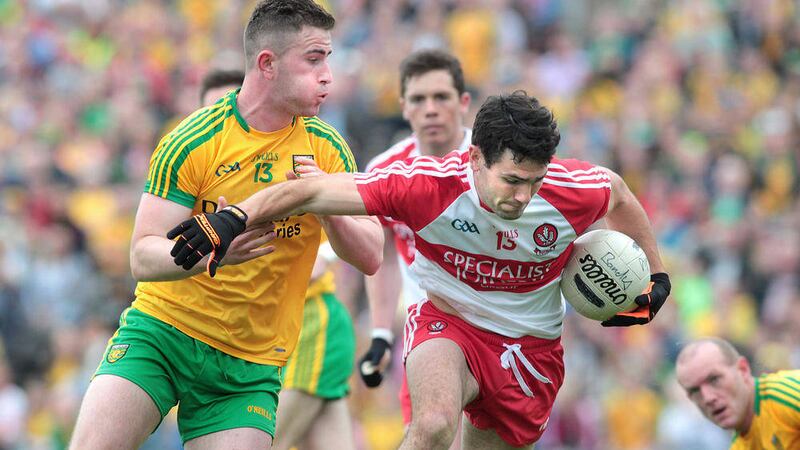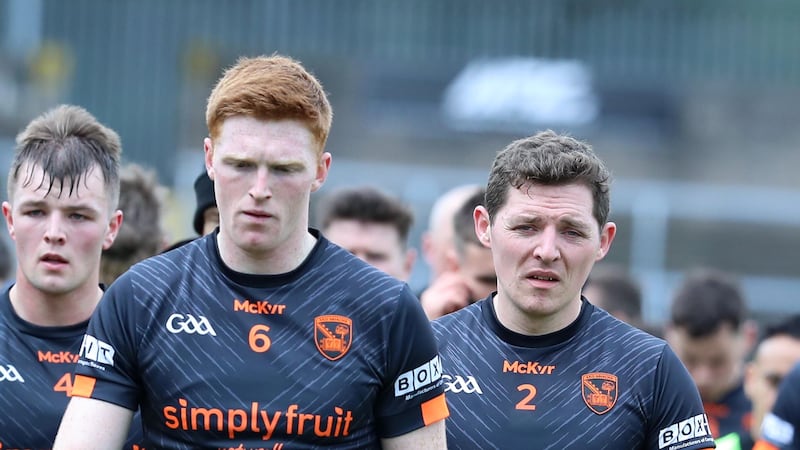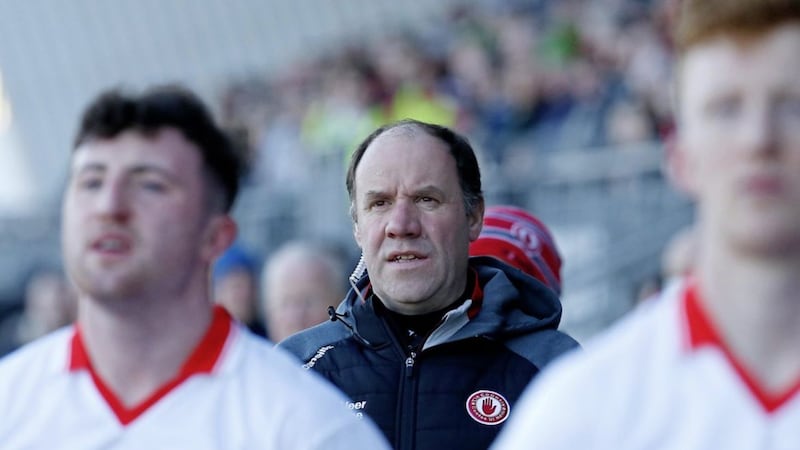“Mental toughness is many things and rather difficult to explain. Its qualities are sacrifice and self-denial. Also, most importantly, it is combined with a perfectly disciplined will that refuses to give in. It’s a state of mind - you could call it character in action.” Vince Lombardi.
ONE of the biggest challenges facing a manager is to develop mental toughness among his players. It is becoming even more important in the game now.
The greater emphasis on the tactical side of the game puts more pressure on players to remain focused on their role. Gone are days of players playing ‘off the cuff’. The game still allows players to show their individual brilliance but the game is much more structured.
A manager can only do so much to develop mental toughness. The final piece of the jigsaw comes from winning. The Tyrone team I played on needed to win an All-Ireland before we got that mental edge.
If you compare our semi-final performances in 2003 and '05, the difference in our mindset is easy to see. Against Kerry in 2003, our second half play was full of fear. Pat Spillane’s term ‘puke football’ was born, not by a pre-determined plan but from a fear of the opposition and, ultimately, defeat. Yet two years later, we came from a point down with time virtually up to defeat Armagh, who had become known for their ability to close out tight games.
The one team I would back to come through in a close game now is Donegal. Plenty is made of the Donegal system allowing them to win games when playing poorly. However, the mental resilience they display stands out a mile for me.
There is no doubt Jim McGuiness’ background in sports psychology is a major reason for the development of this. Rory Gallagher has created an environment that allows it to continue.
Last weekend’s win over Derry provided more evidence of the mental edge Donegal have over virtually everyone in the country. They closed out the game with supreme confidence, while Derry lost their discipline in the closing stages.
Brendan Rogers and Ciarán McFaul both received black cards when the game was still there to be won by Derry. Donegal showed all their experience after both incidents by pressuring the referee and starting a pushing match between players. It helped to run down the clock and Derry took the bait. If Derry had been ahead on the scoreboard, I really doubt Donegal would have been the team losing their composure.
Donegal were able to win without the usual penetrating runs from deep of Karl Lacey and Frank McGlynn; Michael Murphy was relatively quiet apart from two superb points and Patrick McBrearty had little influence. There are few teams able to win without their key men playing well but, in truth, it was similar to last year’s match against Derry in that Donegal never looked like losing.
The worrying aspect from a Donegal point of view is that their mental resolve will only get them so far. A better team will exploit a similar performance. Monaghan are just that and Donegal will need to improve to collect another Ulster title.
Defensively, they looked vulnerable at times, just like they did against Tyrone. That may seem strange considering they only conceded 10 points but we have to judge Donegal on the level needed to be All-Ireland champions. Derry, like Tyrone, do not carry the ball at pace and were still able to create a lot of scoring chances.
We can assume now that Michael Murphy will spend next to no time at full-forward this year. He spent almost the entire match in the middle third despite Donegal struggling to threaten the Derry full-back line.
Derry did an excellent job of closing down the space in front of McBrearty, while at the same time forcing the Donegal ball-carriers away from the centre of the pitch.
There was some poor decision making from Donegal, with bad shot selection and long, aimless ball inside. Derry ensured that the early long ball that destroyed Armagh didn’t come and they got their defence set-up as a result.
The 10 minute spell after half time proved crucial, just like last year’s match between the two teams. Martin O’Reilly’s goal capped a five-point swing from half-time and Donegal won’t lose a lead like that. The goal came from a poor kick out from Thomas Mallon and his struggles, and a lack of movement from his midfielders, meant Donegal dominated possession.
I was impressed by Cailean O’Boyle inside, who always looked a threat but the downside of Derry’s defensive strength was that he lacked support up front. The substitutions of O’Boyle and Seán Leo McGoldrick were surprising as they were two of Derry’s better players.
Derry should go into the Qualifiers in a positive frame of mind but their results in past years have been mixed. Still, a home draw to Wexford presents them with a great chance to advance to the next round.
TYRONE'S performance against Limerick was typical of an opening Qualifier game for a team who had realistic provincial ambitions at the start of the Championship.
Their play lacked conviction for the opening 55 minutes but the only matter in question was how much they would win by. A match against Limerick was never going to excite the players but getting back on track was the most important aspect.
Although Meath may not be the force they once were, their tradition means Mickey Harte will find it much easier to focus his players in the next two weeks. Meath’s collapse against Westmeath will have highlighted their defensive shortcomings.
Mattie Donnelly was utilised in the full-forward line at times against Limerick and it is an experiment we may see more of, especially now Tyrone are free from Ulster opposition. He has all the attributes of an effective ball winner inside though his lack of game time in the position would be a concern.
Meath were extremely poor when run at last weekend and Donnelly would certainly test them, as would Peter Harte, who was superb against Limerick when running from deep.
There is no reason why Ulster cannot have five teams making it through round two of the Qualifiers.
Home draws mean Tyrone and Derry should join Fermanagh or Antrim, while Armagh and Cavan will also feel they can benefit from home advantage against Galway and Roscommon.








